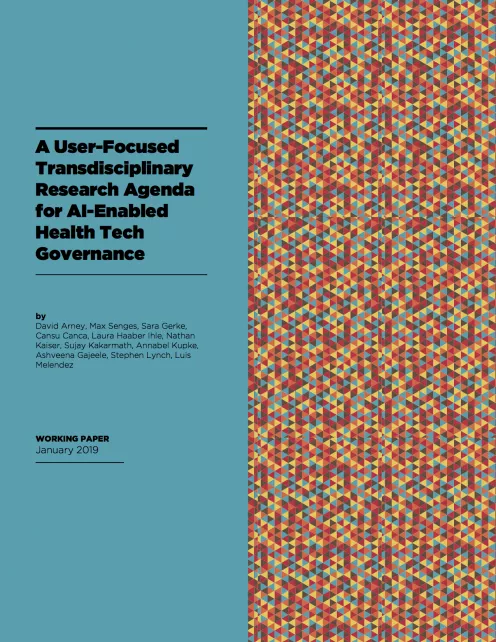
A new working paper from participants in the AI-Health Working Group out of the Berkman Klein Center for Internet & Society at Harvard University, the Petrie-Flom Center for Health Law Policy, Biotechnology, and Bioethics at Harvard Law School, and the AI Ethics Lab sets forth a research agenda for stakeholders to proactively collaborate and design AI technologies that work with users to improve their health and wellbeing.
From the paper:
AI-enabled health technology holds significant promise for improving health outcomes and clinical workflows. However, it also generates challenges for health data governance and security. More specifically, apps that involve AI health coaching (e.g., an AI-mediated dialogue between the user and healthcare providers) evoke concerns about medical paternalism and privacy as well as the need for encompassing a broad range of individual understandings of what constitutes a good life. Leveraging a transdisciplinary approach, this paper sets forth a research agenda for stakeholders to proactively collaborate and design AI technologies that work with users to improve their health and wellbeing.
This research agenda is put forward in hopes of convening a range of stakeholders (researchers, practitioners, entrepreneurs, policy makers, etc.) who seek to deliberate and shape the ethically and technically-intricate digital health field. Please send comments as well as proposals for collaboration to ai-health@cyber.harvard.edu or petrie-flom@law. harvard.edu or contact@aiethicslab.com or contact one of the authors.



